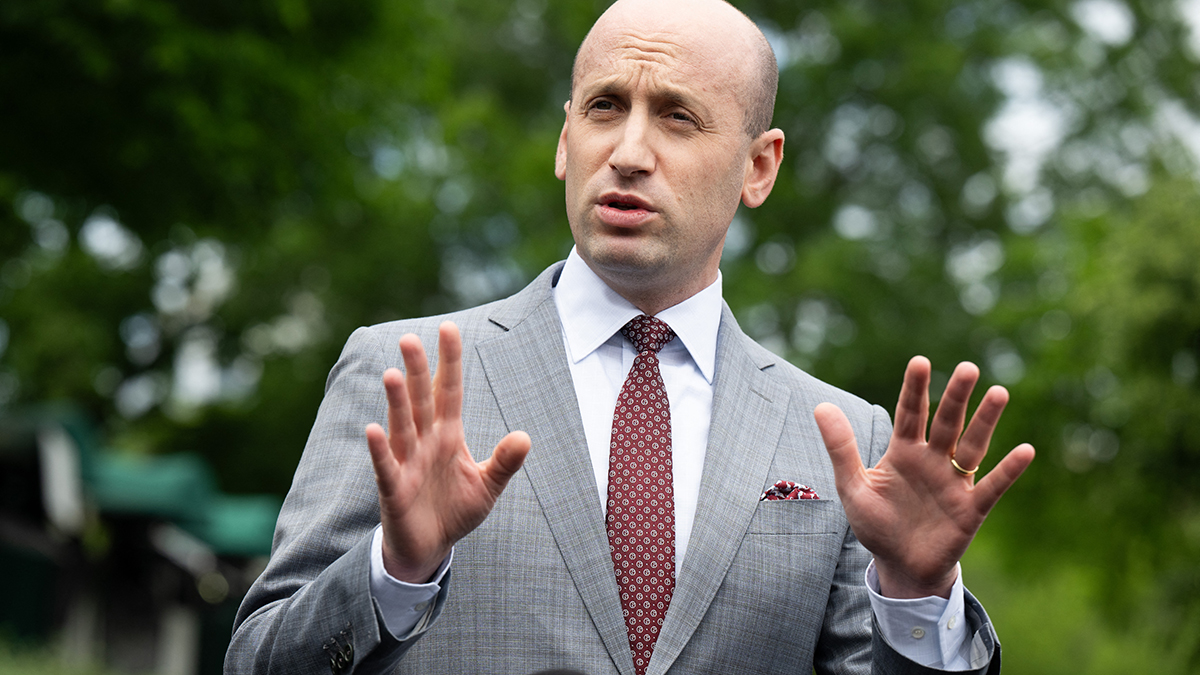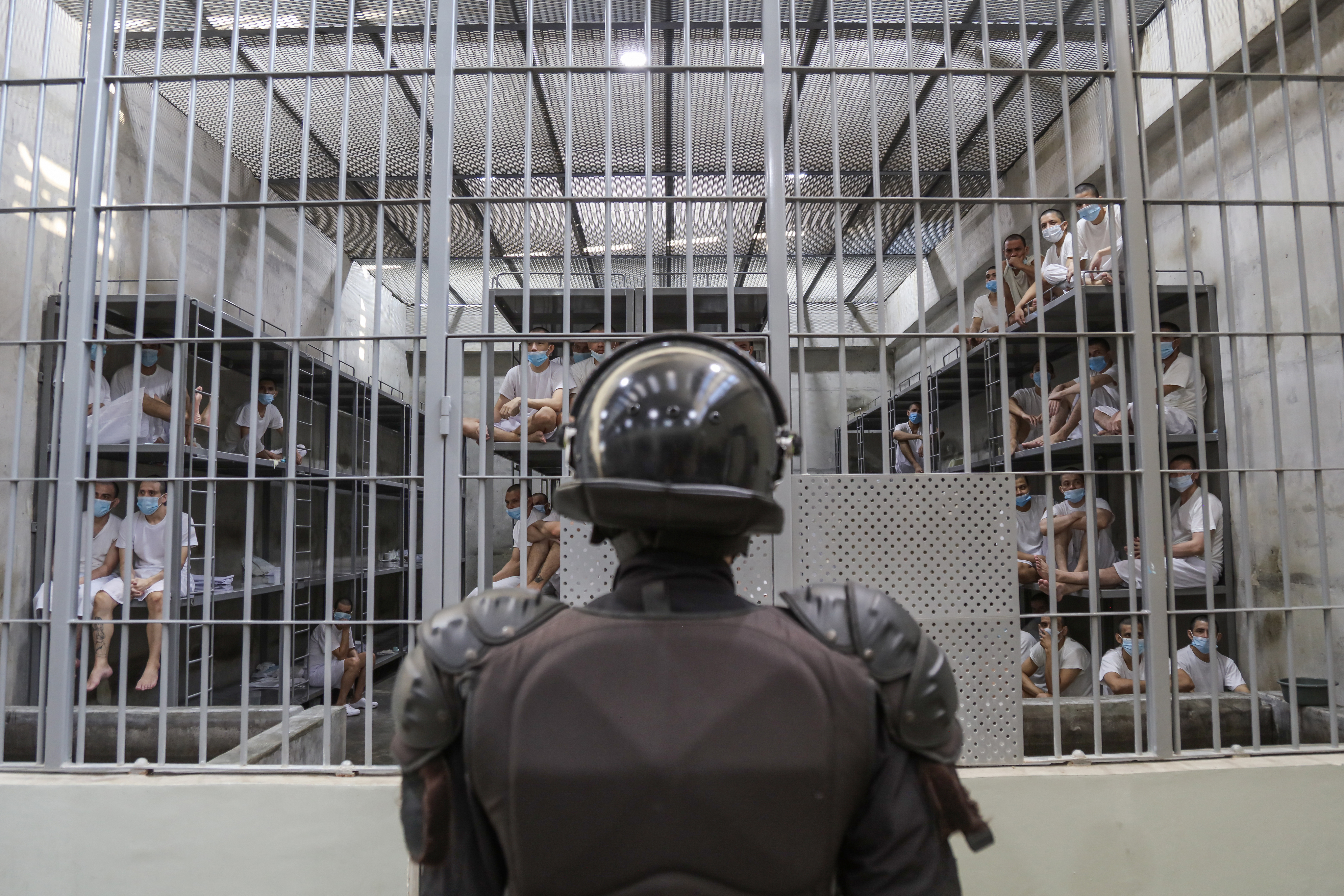Stephen Miller, White House deputy chief of staff, recently told reporters that the Trump administration is “actively evaluating” the possibility of suspending a constitutional protection that has been in place for more than two centuries.
Habeas corpus guarantees someone who is detained or arrested representation by a lawyer, and to a judge that will evaluate the legality of their detention.
But where did the principle come from? And why is the current administration looking to repeal it?
Here’s what to know.
A constitutional protection as old as the United States
The term habeas corpus, in Latin, literally means “you have the body.” It is a mechanism used against unlawful detention.
The United States adopted habeas corpus from England when it was founded, according to constitutional lawyer Jesús Rivera Delgado. In England, it was used as early as the 13th century to limit the power of the state, which at that time was a monarchy.
Habeas corpus is currently enshrined in the United States Constitution in Article 1, Section 9, as part of the powers of Congress.
“Therefore, the United States Constitution recognizes habeas corpus, and it’s under the control of the legislature,” Rivera Delgado said. “So as I understand it, for a president to repeal habeas corpus, he would need the legislature to pass legislation.”
The Constitution only has two conditions under which habeas corpus protections can be suspended: in cases of rebellion or invasion. That’s one of the arguments the Trump administration would use to try and repeal it.
Why is the Trump administration considering suspending habeas corpus?
Miller suggested last Friday that the government would seek to suspend habeas corpus for reasons related to immigration.
“The Constitution is clear, and that, of course, is the supreme law of the land, that the privilege of the writ of habeas corpus can be suspended at a time of invasion. So I would say that’s an action we’re actively looking at,” Miller told reporters in the White House driveway.
But Rivera Delgado warned that, for the U.S. to be considered “invaded,” there would need to be a threat from another country or group with the intention and military capability to overthrow the government.
“That is not what has happened,” Rivera Delgado said.
“He’s trying to use analogies to establish that the problem of illegal immigrants in the United States is an invasion,” Rivera Delgado said. “I think that’s already stretching the point too far.”
Trump addressed the issue in a statement on April 30, CNN reports.
“There are ways to mitigate it and there’s some very strong ways,” Trump said. “There’s one way that’s been used by three very highly respected presidents, but we hope we don’t have to go that route. But there is one way used successfully by three presidents – all highly respected – and hopefully we don’t have to go that way but there are ways of mitigating it.”
It’s only been suspended before “in situations of war”
Habeas corpus has only been suspended four times in U.S. history.
The first time was under the order of then-military-commander Andrew Jackson, to protect New Orleans from British invasion in 1814.
The second was under former President Abraham Lincoln, during the Civil War in 1861.
The third time habeas corpus was suspended was under former President Theodore Roosevelt, who suspended this protection in two provinces of the Philippines during a rebellion in 1905.
The fourth and last time habeas corpus was suspended was in 1941, during former President Franklin Delano Roosevelt’s administration. He suspended the statue in Hawaii after the Japanese attack on Pearl Harbor.
“The precedents for when a president has suspended habeas corpus have been in situations of war or insurrections that threaten the order established by the federal government,” Rivera Delgado explained.
He also emphasized again that he believes Trump could not suspend habeas corpus protections without first obtaining Congressional approval.
“To make the analogy that (immigration) is an invasion against the national security of the United States, well, yes, he can say that. So we have to see how the federal courts are going to act, because that will provoke litigation in the federal courts,” Rivera Delgado said.
Habeas corpus: right or privilege?
Although the Constitution explicitly states the “privilege of habeas corpus,” Rivera Delgado clarified that the Supreme Court has interpreted this statute as a right.
Because the United States Constitution was adopted in 1787 based on the English Magna Carta, the word “privilege” remained.
“In that sense, the language of the Constitution implies that this is a right. The thing is that at that time, there was no talk of constitutional rights,” he emphasized.
One of the most recent precedents is Boumediene v. Bush and Al Odah v. United States, two cases that the Supreme Court consolidated when reviewing them in 2008. The controversy in this case revolved around whether habeas corpus applied to non-citizens detained at Guatanamo and whether the place was considered a U.S. jurisdiction.
The case escalated to the highest court after the United States began detaining suspected terrorists at the Guantanamo Bay naval base shortly after the events of September 11, according to judicial documents. Many of these detainees were not U.S. citizens and were classified as “enemy combatants.”
In a ruling, the Supreme Court justices determined that Guantanamo falls under U.S. jurisdiction and that the principle of habeas corpus applies to non-citizens because it is a “constitutional right.”
This story first appeared in Spanish on Telemundo 44. Para leer en Español, haz clic aquí.
from Local – NBC4 Washington https://ift.tt/roSVhKP







0 Comments